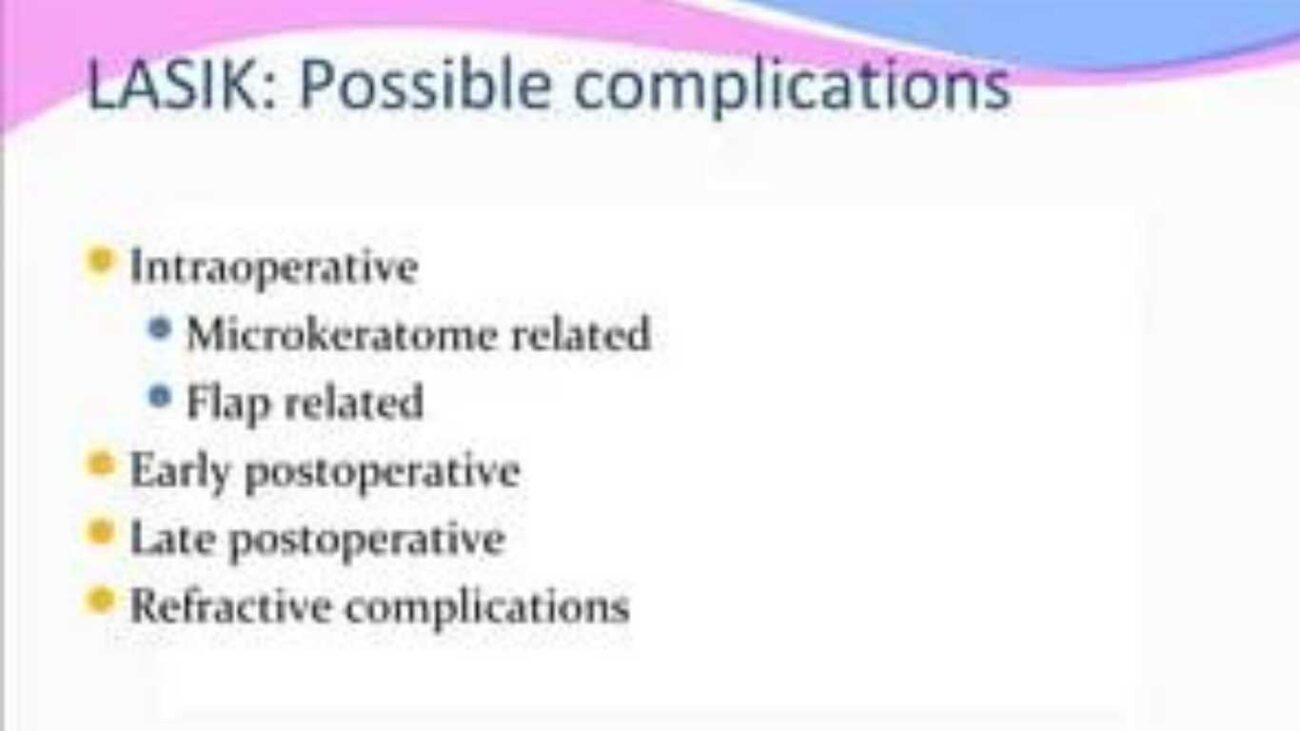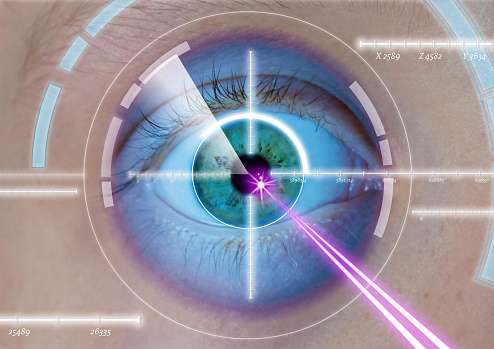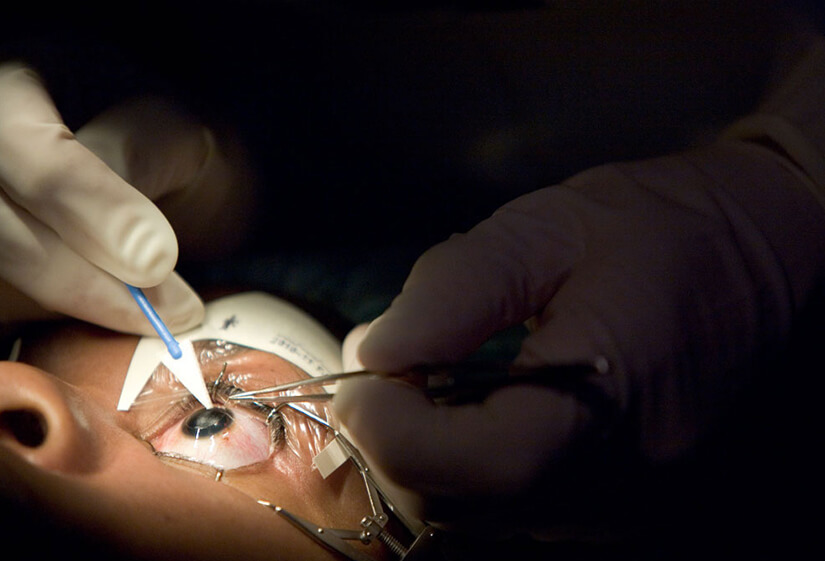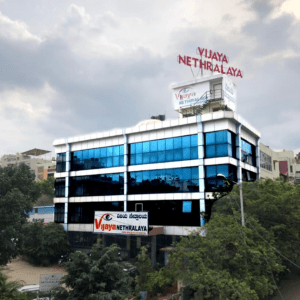Introduction:
When it comes to vision correction, Lasik eye surgery has emerged as a popular option for many individuals seeking freedom from glasses or contact lenses. However, like any medical procedure, Lasik does come with its set of potential side effects. In this article, we’ll delve into the various lasik eye surgery side effects, shedding light on what you need to be aware of before opting for this procedure.
Understanding Lasik Eye Surgery:
What is Lasik Eye Surgery?
Lasik (Laser-Assisted In Situ Keratomileusis) is a surgical procedure designed to correct refractive vision problems such as nearsightedness, farsightedness, and astigmatism. The surgery involves reshaping the cornea to improve how light enters the eye, ultimately enhancing vision clarity.

How Does Lasik Work?
During the procedure, a surgeon creates a thin flap in the cornea using a laser or microkeratome. This flap is then folded back, and another laser is used to remove a precise amount of corneal tissue. The cornea’s reshaping allows light to focus properly onto the retina.
Potential lasik eye surgery side effects:
Dry Eyes:
One of the most common side effects of Lasik surgery is dry eyes. This happens because the procedure temporarily disrupts the corneal nerves responsible for tear production. While most cases resolve within a few weeks, some individuals may experience prolonged dryness.
Glare and Halos
Increased glare and halos around lights, especially at night, may be encountered by some Lasik patients. These visual disturbances can affect night driving and other low-light situations.
Fluctuating Vision
Some patients might notice fluctuations in their vision during the first few weeks after the surgery. This can include periods of blurry vision or difficulty focusing, which usually stabilize over time.
Under correction or Overcorrection:
Achieving the desired vision correction isn’t always guaranteed. Some patients might experience undercorrection (not achieving the desired level of vision improvement) or overcorrection (experiencing better vision than intended, which might lead to the need for reading glasses).
Rare but Serious lasik eye surgery side effects:
Corneal Ectasia
Corneal ectasia is a rare but serious complication that can occur after Lasik surgery. It involves the cornea becoming thinner and bulging forward, leading to distorted vision. This condition might require further surgical intervention.
Vision Loss
Although extremely rare, severe complications during or after Lasik surgery can lead to permanent vision loss. It’s crucial to choose an experienced and qualified surgeon to minimize this risk.
Infection and Inflammation
Like any surgical procedure, Lasik comes with the risk of infection and inflammation. Proper post-operative care and following the surgeon’s instructions can significantly reduce these risks.
Author Details:
Dr. Sushruth Appajigowda is a well-known Cornea, Cataract, Glaucoma and LASIK Surgeon in Bangalore, and the chief Cataract and Refractive surgeon at Vijaya Nethralaya Eye Hospital, Nagarbhavi Bangalore. Known as one of the best LASIK surgeons in the country, he has over 12+ years of experience with multiple platforms of LASIK like ZEISS, ALCON, SCHWIND, AMO, and Bausch and Lomb. He has conducted over 5000 LASIK. Dr Sushruth is a Certified Refractive Surgeon and Fellow of All India Collegium Of Ophthalmology. He is recognised speaker in various National and International Forums. His expertise lies in choosing the right type of procedure for you based on your health requirement.

Conclusion:
Lasik eye surgery offers numerous benefits, but it’s essential to understand that like all medical procedures, it isn’t without potential risks. While many individuals experience successful outcomes, there is always a possibility of encountering side effects. Before deciding on Lasik, it’s crucial to consult with an eye care professional, thoroughly discuss potential risks, and make an informed decision based on your individual needs and circumstances.
FAQs (Frequently Asked Questions):
- Is Lasik Eye Surgery Painful? Lasik surgery is relatively painless, and any discomfort is usually minimal and temporary.
- Can I Develop Dry Eyes Permanently? In most cases, dry eyes after Lasik are temporary and improve with time. However, some individuals might experience prolonged dryness.
- Are There Age Restrictions for Lasik? While age restrictions may apply, the suitability for Lasik depends more on eye health and stability of vision rather than age.
- How Long Does Recovery Take? Most people experience improved vision within a day or two, but complete visual recovery might take a few weeks.
- Can I Undergo Lasik if I Have Astigmatism? Yes, Lasik can correct astigmatism in addition to nearsightedness and farsightedness, but the eligibility depends on various factors.












